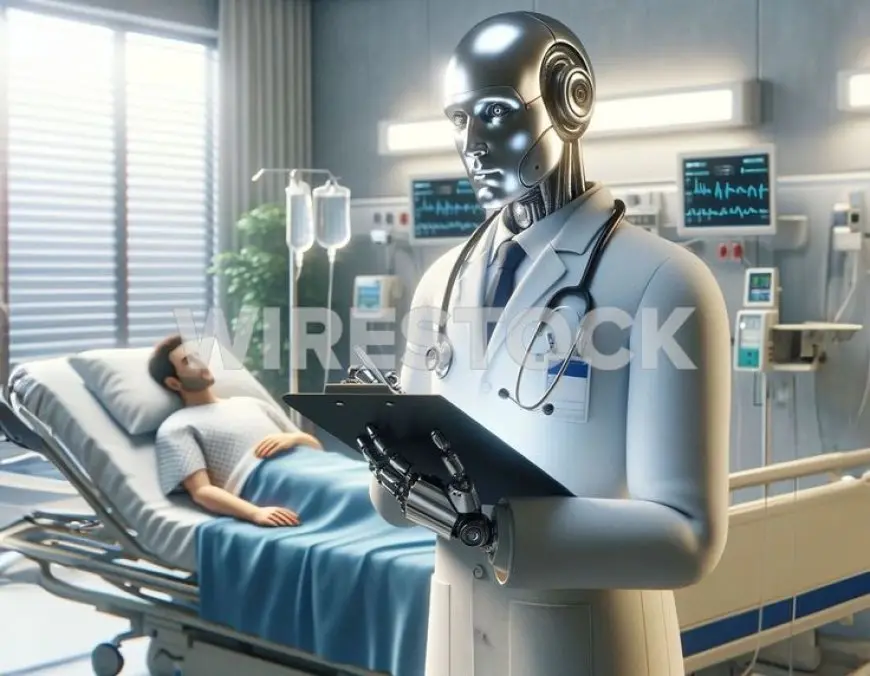"Robotics in Healthcare: Innovations and Future Potential"
"Robotics in Healthcare: Innovations and Future Potential"

The integration of robotics into healthcare has led to groundbreaking innovations that are reshaping the way medical professionals diagnose, treat, and care for patients. Robotics, once confined to industrial applications, has evolved to offer solutions that improve precision, reduce human error, and enhance patient outcomes. As technology continues to advance, the potential for robotics in healthcare is limitless, with opportunities to revolutionize everything from surgery to patient rehabilitation.
One of the most notable applications of robotics in healthcare is in the field of surgery. Robotic-assisted surgeries, such as those performed with the da Vinci Surgical System, allow surgeons to perform complex procedures with greater precision and control. These systems use tiny robotic arms equipped with cameras and specialized instruments, enabling surgeons to operate through small incisions with minimal disruption to surrounding tissues. The result is less pain, faster recovery times, and a reduced risk of complications for patients.
In addition to surgery, robotics has significantly advanced the realm of diagnostics and imaging. Robotic systems are increasingly being used to perform tasks such as imaging, sample collection, and laboratory analysis. Robotic automation in diagnostic labs improves efficiency and accuracy, ensuring quicker and more reliable results. In the future, we can expect to see even more sophisticated robotic technologies that can detect diseases at earlier stages, helping to reduce diagnostic errors and improve treatment outcomes.
Robots are also playing a key role in patient rehabilitation. Robotic exoskeletons and assistive devices are enabling individuals with physical disabilities or neurological conditions to regain mobility and independence. These devices work by providing mechanical support to patients, helping them perform tasks such as walking, standing, or even performing fine motor functions. As robotic technology improves, rehabilitation therapies will become more personalized and effective, accelerating recovery times and improving quality of life.
In the area of elderly care, robots are being developed to assist with routine tasks such as medication reminders, mobility assistance, and companionship. These robots help reduce the burden on caregivers and ensure that elderly individuals maintain a high level of independence. Furthermore, robotics can help monitor vital signs and detect potential health issues before they become serious, enabling early intervention and preventing hospitalizations.
Robotic prosthetics are another area of innovation, allowing patients who have lost limbs to regain function and mobility. Advanced prosthetic limbs, powered by AI and robotics, can adapt to the movements of the user, offering a more natural and responsive experience. These prosthetics are continuously evolving to become lighter, more durable, and more affordable, providing greater opportunities for patients to lead active and fulfilling lives.
Despite the many advancements, the future of robotics in healthcare also faces challenges. Ethical considerations around patient privacy, the cost of robotic technologies, and the need for extensive training for healthcare professionals are important factors that need to be addressed. Additionally, while robots enhance the capabilities of healthcare providers, they cannot replace the human touch, which remains a critical component of patient care.
Looking ahead, the potential for robotics in healthcare is vast. Advances in artificial intelligence, machine learning, and sensor technologies will likely lead to even more sophisticated robotic systems that can assist in everything from complex surgeries to routine care. The future of healthcare will likely see even greater collaboration between human clinicians and robotic systems, creating a more efficient, personalized, and effective healthcare environment.
In conclusion, robotics has already begun to transform healthcare in profound ways, from surgical precision to patient rehabilitation. As technology continues to advance, the integration of robotics into healthcare will likely expand, offering new opportunities to improve outcomes, reduce costs, and enhance the overall patient experience. The future of healthcare is undoubtedly intertwined with robotics, promising a more efficient, accessible, and effective system for patients and providers alike.







